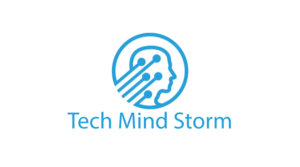In the ever-evolving realm of data science, Data Scientists rely on various cutting-edge tools to grab meaningful insights from vast datasets. These tools are the backbone of the Data Scientist’s arsenal, enabling them to unlock patterns, trends, and valuable information that drive informed decision-making. In this blog, we will delve into the essential tools used by Data Scientists in 2024, highlighting their significance and contribution to the field.
- Programming Languages: At the core of every Data Scientist’s toolkit lies proficiency in programming languages, and two languages stand out prominently—Python and R. Python, with its versatility and extensive libraries like Pandas, NumPy, and Scikit-learn, is the go-to language for data manipulation, analysis, and machine learning tasks. On the other hand, R is preferred for its statistical computing capabilities, making it indispensable for data exploration and hypothesis testing.
Data scientists often leverage the strengths of both languages depending on the specific requirements of a project. A comprehensive Data Science Course equips professionals with the proficiency to harness these programming languages’ power seamlessly.
- Data Visualisation Tools: Transforming complex datasets into visually intuitive representations is a crucial aspect of data science. Visualization tools like Tableau, Power BI, and Matplotlib help Data Scientists create compelling charts, graphs, and dashboards that facilitate a deeper understanding of data trends. These tools effectively communicate insights to non-technical stakeholders, helping bridge the gap between the raw data and actionable insights.
We saw a well-designed Data Science Course in Bangalore that includes hands-on training with these visualization tools, which ensures that professionals can skillfully present their findings in a manner that is visually appealing and accessible to laymen.
- Machine Learning Frameworks: Machine learning is at the heart of predictive analytics, and Data Scientists rely on frameworks such as TensorFlow and PyTorch to build, train, and deploy machine learning models. These frameworks provide a robust foundation for tasks like natural language processing(NLP), recommendation systems, and image recognition.
Understanding the intricacies of machine learning frameworks is a fundamental aspect of leveraging the power of these frameworks to solve complex business problems.
- Big Data Tools: With the exponential growth of data, handling massive datasets has become a common challenge in data science. Tools like Apache Hadoop and Apache Spark are instrumental in efficiently processing and analyzing large volumes of data. Hadoop’s distributed file system and Spark’s in-memory processing capabilities empower Data Scientists to tackle significant data challenges head-on.
A thorough Data Science Course equips professionals with the skills to leverage these big data tools, ensuring they can extract valuable insights from vast and complex datasets.
- Database Management Systems: Data Scientists work with diverse datasets stored in various formats, and efficient database management is crucial for seamless data analysis. SQL and NoSQL databases, including MySQL, PostgreSQL, MongoDB, and Cassandra, are commonly used to store, retrieve, and manage data. A sound understanding of database systems is essential for data scientists to access and manipulate data effectively.
The comprehensive Data Science Course in Bangalore offers professionals hands-on training for proficiency in working with different database management systems, enhancing their ability to handle diverse data sources.
Proficiency with tools is a cornerstone for success in a field as challenging and rewarding as Data Science. Programming languages, visualization tools, machine learning frameworks, big data tools, and database management systems collectively form the toolkit that empowers Data Scientists to extract valuable insights and drive impactful decisions. Aspiring students can embark on their Data Scientist journey by enrolling in a well-structured Data Science Course that provides hands-on training with these essential tools. By mastering the tools of the trade, Data Scientists can navigate the complexities of the field and contribute meaningfully to the data-driven advancements shaping the future of industries worldwide.
ExcelR – Data Science, Data Analytics Course Training in Bangalore
Address: 49, 1st Cross, 27th Main, behind Tata Motors, 1st Stage, BTM Layout, Bengaluru, Karnataka 560068
Phone: 096321 56744
